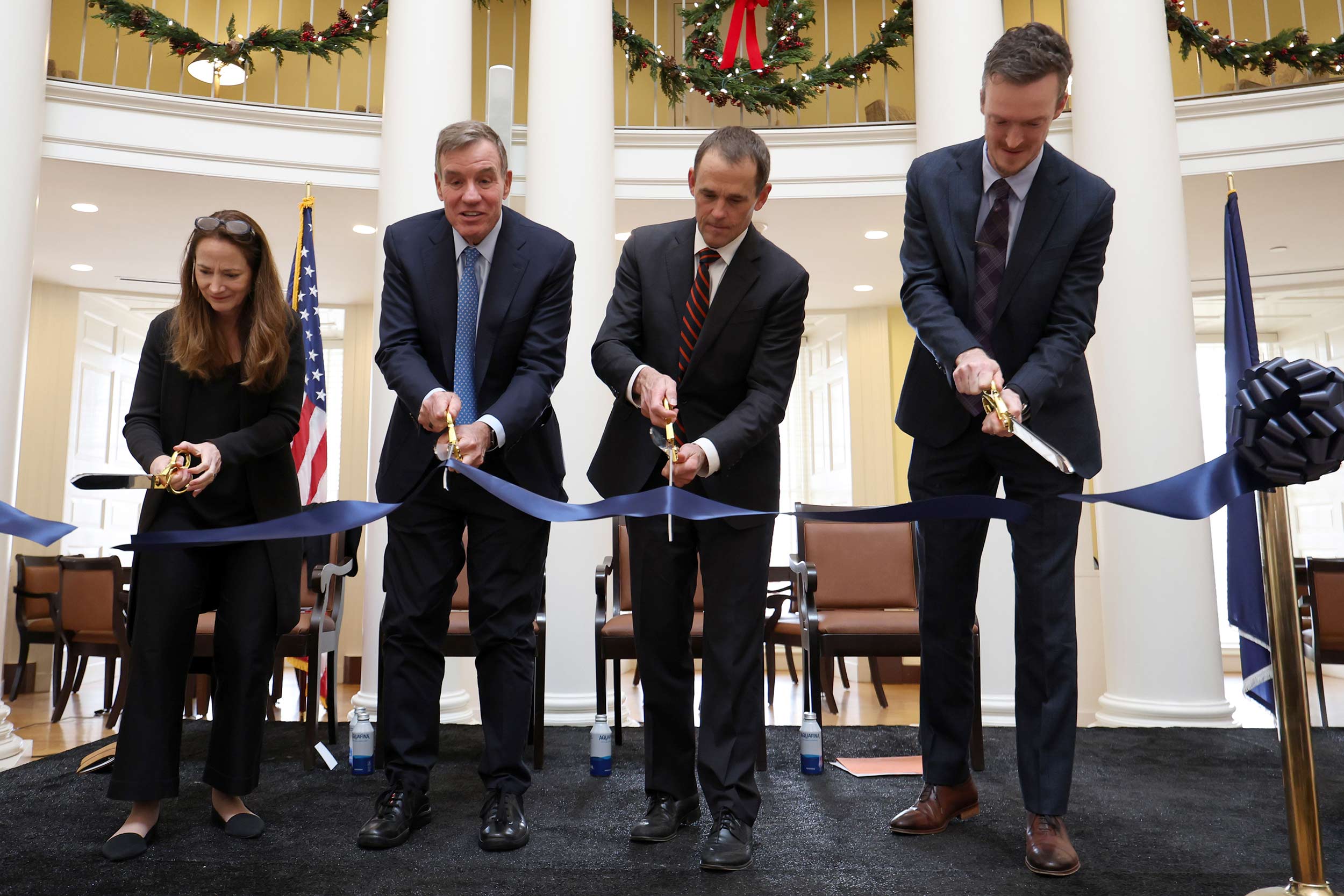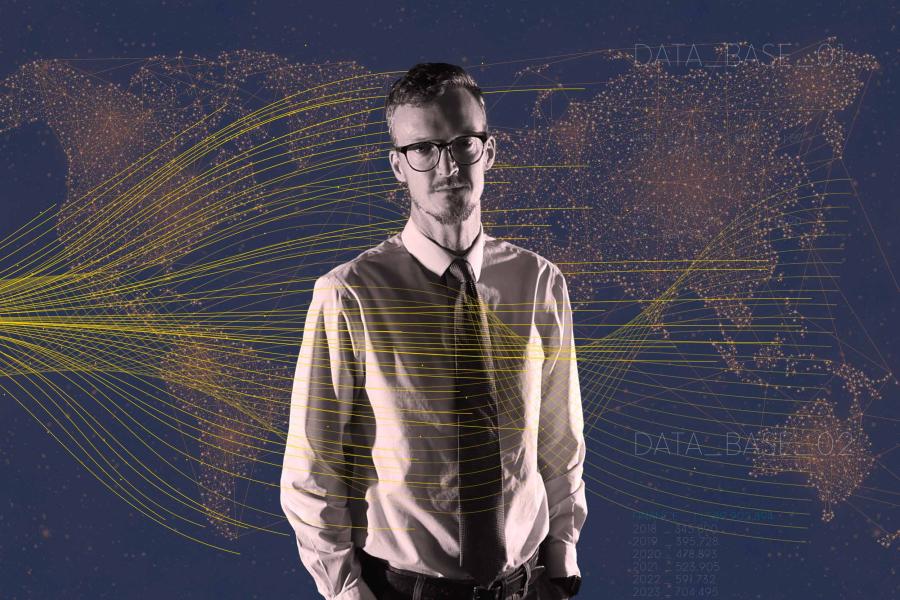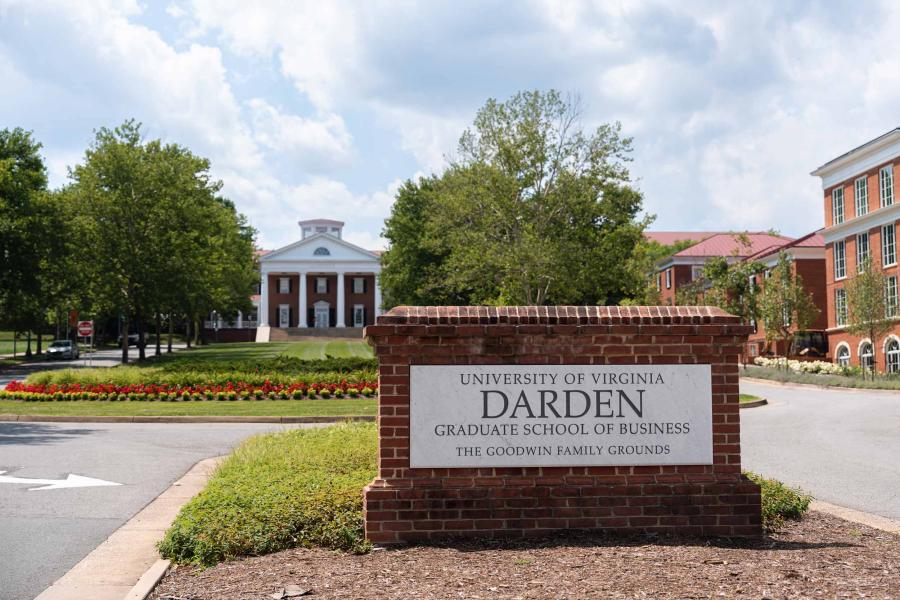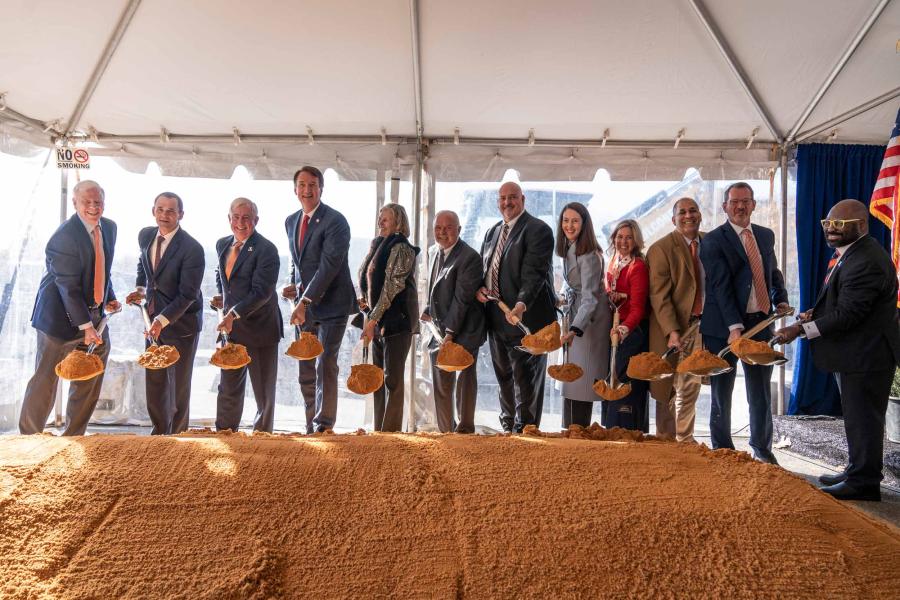Director of National Intelligence Avril Haines and Sen. Mark Warner, chairman of the Senate Select Committee on Intelligence, joined University of Virginia President Jim Ryan and professor Philip Potter to cut a ceremonial ribbon Friday marking the opening of the National Security Data and Policy Institute, UVA’s sixth university-level institute.
The new institute, backed by a $20 million government contract, will combine UVA’s expertise in data science, artificial intelligence, research computing and public policy to address important national security challenges.
The partnership, Warner said, is a critical step in expanding national intelligence beyond “who’s got the most tanks and guns and ships and planes” to understanding the computing, data and artificial intelligence capabilities of other nations, and ensuring U.S. capabilities remain superior.
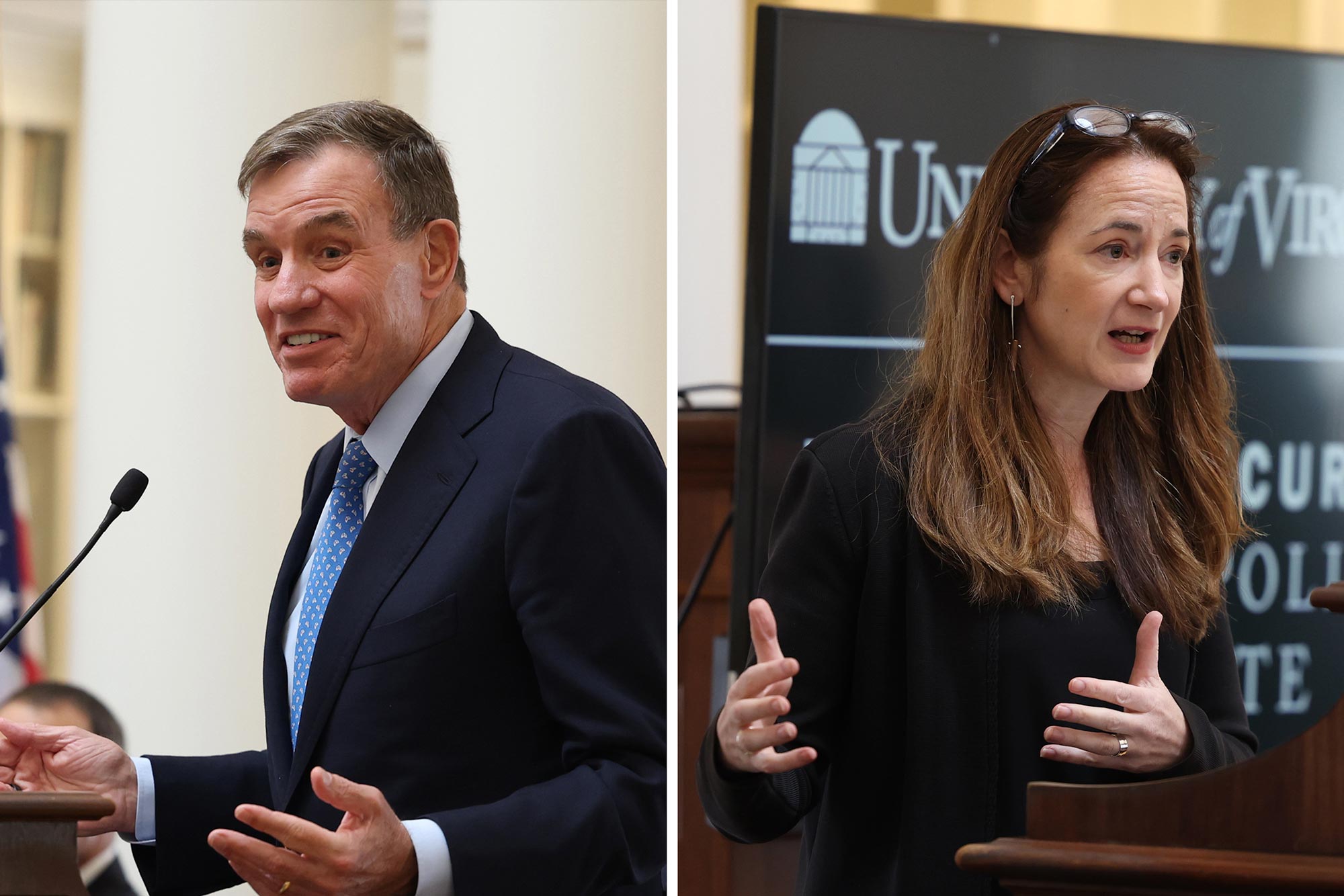
Warner, left, and Haines, right, said UVA is a natural fit to host this intelligence and security institute because of its proximity to Washington and its expertise in data, artificial intelligence and public policy. (Photos by Matt Riley, University Communications)
“Traditionally, espionage, spying has been about investigating an adversary’s government and their military, and that is still needed and appropriate,” Warner said. But, the senator continued, the emerging intelligence front “is going to be who wins the battle for AI, who wins the battle for quantum computing and advanced energy….”
Haines, the national intelligence director, told the crowd of more than 100 in the Rotunda Dome Room that UVA will be the perfect collaborator for this work.
